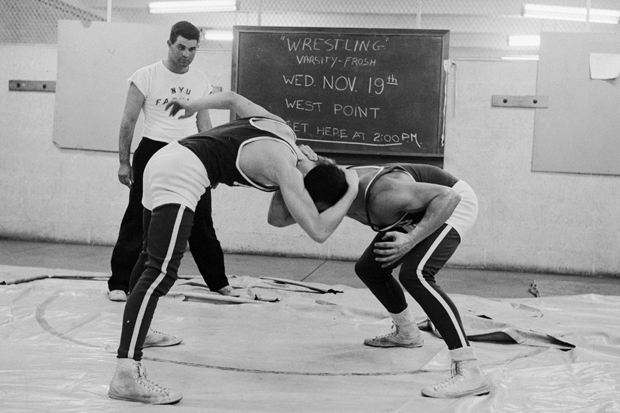An item in an American newspaper had me thinking of my father all last week. Old dad died 27 years ago, which means I have outlived him in age, the only thing I have ever outdone him in. His achievements were too many to list here, and everything I have I owe to him. Compared to his accomplishments, mine has been the underperformance of the century, not that he ever made it obvious. To the contrary, all he did was praise me. He was extremely generous to everyone, especially his employees, took care of those who couldn’t care for themselves, was a decorated hero during the occupation, and I’m proud to have inherited his sense of humour and his womanising. He’s never far from my mind, so I didn’t need the item in the newspaper to remind me of him.
But it sure brought back memories. Here it goes: for most athletes in the Olympics, a medal is the ultimate payoff. Not for wrestlers, however, the sport that remains as pure as it was in ancient times, but whose name has been muddled in the public’s mind with that phony show that is called professional wrestling. Olympic wrestlers do not get the endorsements after a victory that, say, a great track and field athlete does, or a swimmer.
At least in America, where wrestlers are not sponsored by the state, as they are elsewhere, and are mostly dependent for a college education on scholarships to make ends meet. Until now, that is. A billionaire by the name of Mike Novogratz, a private equity tycoon, heads a fraternity of well-heeled former wrestlers, several of whom have made it big on Wall Street. They have offered a prize of half a million greenbacks for a gold, and less lucre for silver and bronze, suddenly making wrestlers the envy of athletes not named Bolt or Phelps. I say bravo to Mike Novogratz, which brings me in a roundabout way back to old dad.
Back in 1951 I had been kicked out of Lawrenceville, a top American boarding school, for insubordination, and had been accepted to Blair Academy, a strict wrestling factory prep school, because of the promise I had shown at Lawrenceville as a 12-year-old grappler. Although under probation, I did OK, even becoming captain of sport and proctor of school.
One of my teachers, who also coached American football, once approached my father during a wrestling meet and asked him to help a young Pennsylvania coal miner’s son by the name of Bob Novogratz who had applied to the school. The Novogratz family was one straight out of The Deer Hunter, proud, patriotic Americans of Polish extraction.
Although one doesn’t mention such matters, it is now more than 60 years, and the helping hand my father gave has been outdone by Bob’s and Mike’s achievements. Bob Novogratz became one of my closest friends while in school, was a star football player, and was undefeated as a wrestler throughout his Blair years. Bob was a heavy-weight, and I wrestled 141 pounds. I managed to get him into trouble once after a wrestling meet in New York, when I took him to a nightclub and a place of ill repute, but he helped me pass my final exams via cram tutoring in math.
Bob went on to West Point, where he became an All-American in football — a very rare thing as West Pointers are expected to know how to read and write, unlike football players in other universities in America. He remained undefeated in college wrestling. He then went on to serve in Vietnam, ending his military career as a general. I never saw him after graduation until 11 years ago, when we all went back for a 50th reunion.
When I was in Nam I had asked for him but he had already been sent back stateside. Another schoolmate and close friend, Gerry Wynn, also a great athlete, had just been killed in An Loc province. He was a captain. I spoke about him at the reunion.
Somewhere along the line Bob got married and raised a family while serving his country. He sent his boy Mike to Blair, where he excelled in the sports his father had. Mike then went to Wall Street and became a very rich man. When I first heard about it I could not have been more proud — it’s what America is all about. I was a good all-around athlete and a good wrestler, whereas Bob was a great athlete and a great wrestler. I turned a great fortune into a modest one, while Mike turned his good genes into a large fortune.
Mike Novogratz started a medal fund in 2009 to help wrestlers continue wrestling, as the sport has been in decline for years. Like other low-profile sports that are not state-assisted in America, wrestlers have to do with far less. Now at least they have the motivation to win medals from Mike’s initiative, wrestling being probably the last true amateur sport in the world.
And my father had in some small way started it all. I am not surprised. Everything he touched turned good, and nothing I can think of is better than the Novogratz family. Score one for the good guys.







Comments